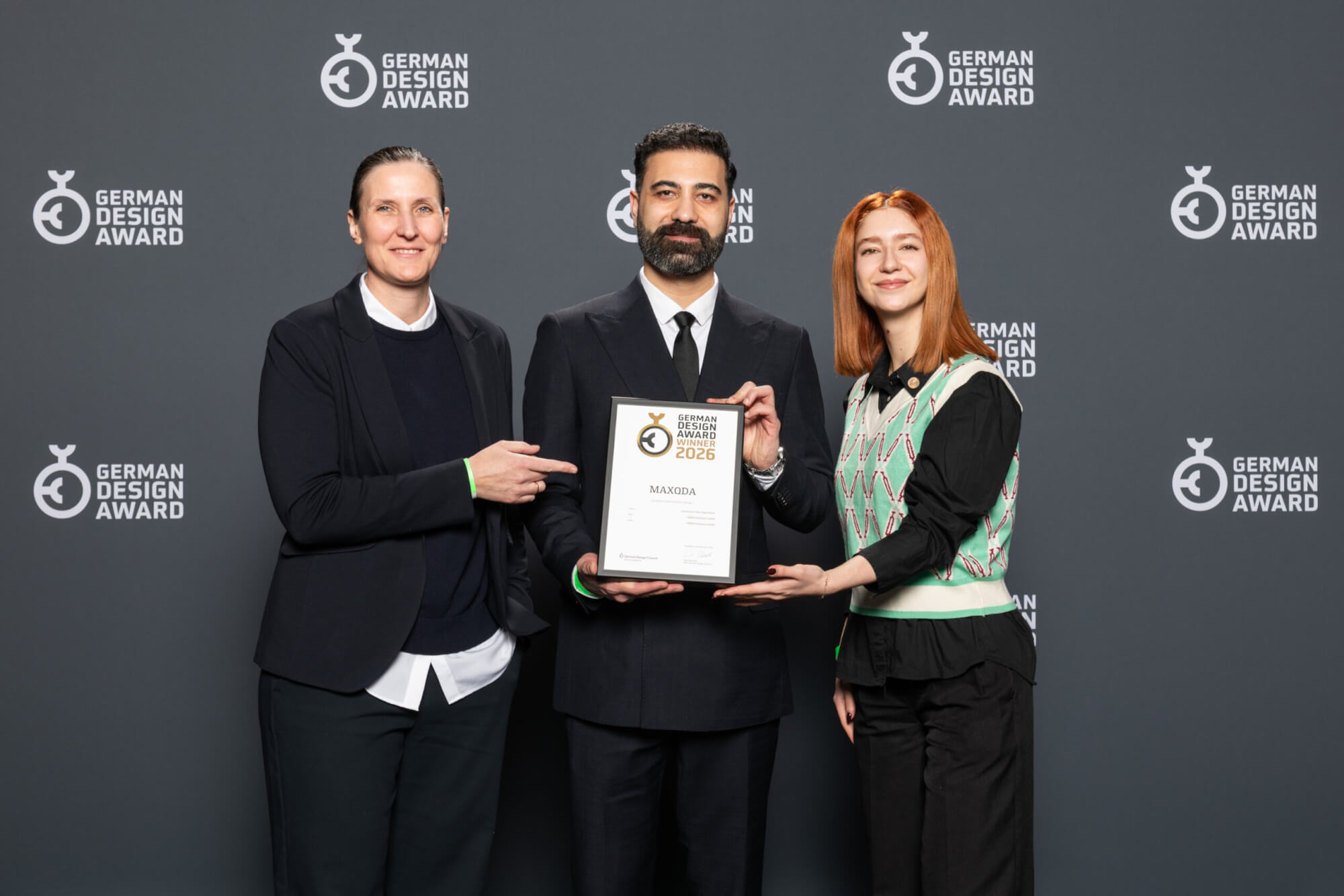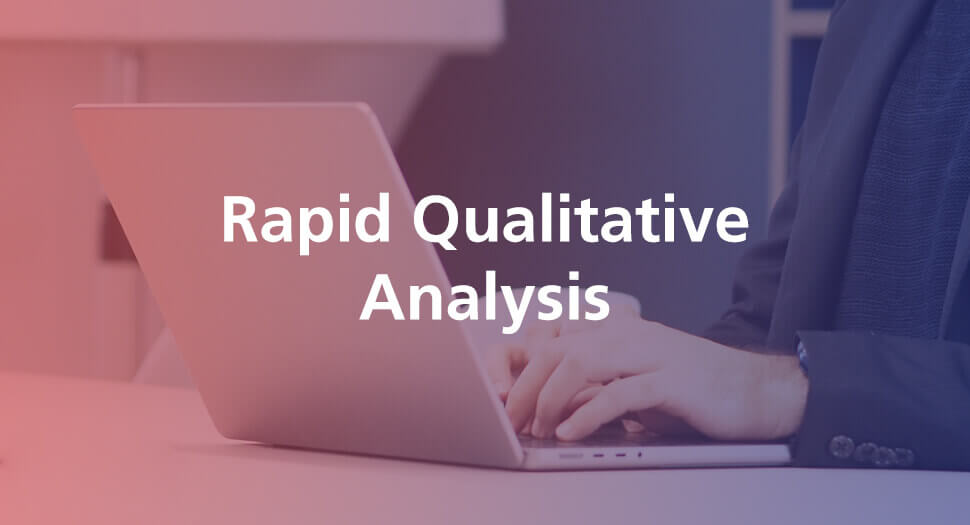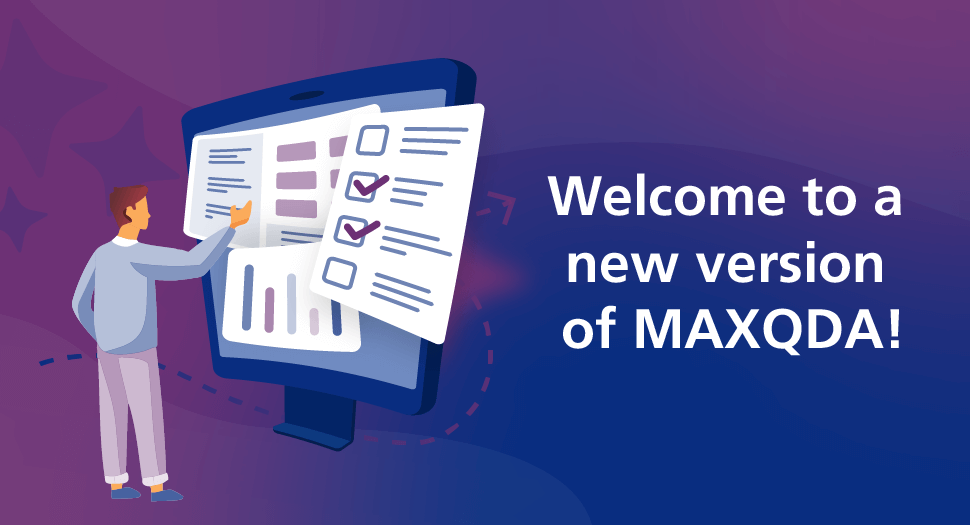Welcome to my first Field Diary Entry! Here I will try to highlight the Portuguese water sector’s significant energy consumption and existing energy efficiency potential that is not properly exploited. This brief framework will help to understand the relevance and necessity of this doctoral research and fieldwork.
Following, the initial steps of this journey will be outlined, namely the literature review, and it will be explained how they helped prepare the next tasks: interviews and questionnaires. Additionally, it will be shown how MAXQDA helped to simplify some of the necessary tasks and to overcome the difficulties encountered.
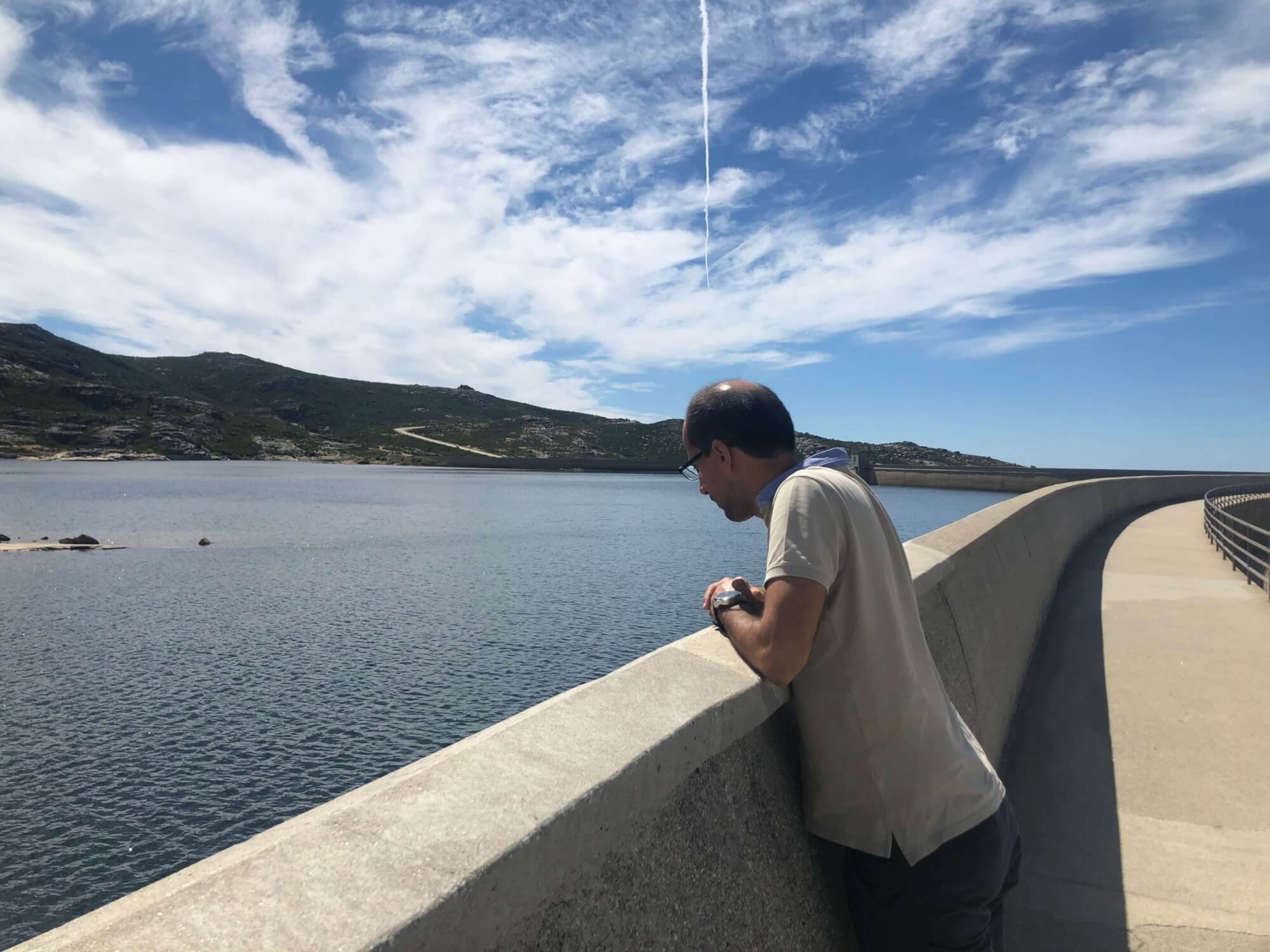
Figure 1 – The researcher at Lagoa Comprida Dam in Serra da Estrela Natural Park, Portugal.
Water sector and energy consumption: a brief framework and research context
The water sector is remarkably energy dependent, accounting in 2014 for about 4% of global electricity consumption, which is then estimated to more than double by 2040. Operations are expected to become more energy-intensive due to three fundamental reasons:
- increment in municipal and industrial water withdrawals.
- higher reliance on non-traditional water resources (desalination, water reuse).
- larger amounts of wastewater being treated to more stringent levels.
Given this trend of increasing energy consumption in the water sector, it is imperative to reduce the environmental impact and to improve the energy efficiency of all facilities. This will require identifying the barriers prevailing in the sector which forestall the existing energy efficiency potential from being fully exploited, as well as determining the most appropriate drivers and incentives to facilitate the adoption of energy efficiency measures.
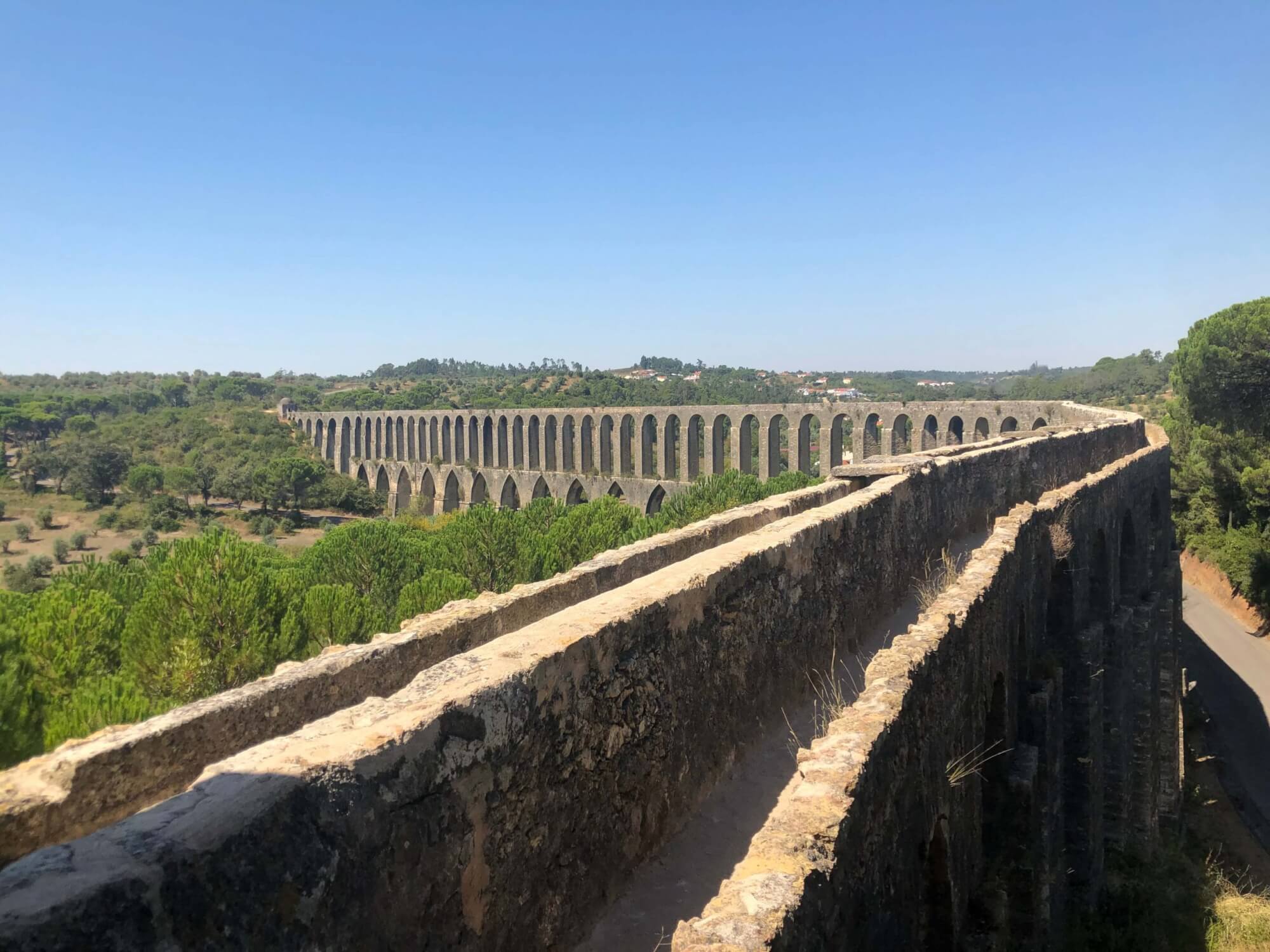 Figure 2 – Pegões Aqueduct in Tomar, Portugal- built in the 17th century.
Figure 2 – Pegões Aqueduct in Tomar, Portugal- built in the 17th century.
Reviewing the literature on Portugal’s water sector with MAXQDA
Although barriers to energy efficiency have been widely investigated across several contexts and sectors, in the water sector this subject has not been properly assessed as there are no thorough studies dedicated to this topic and possibly only a portion of the existing barriers have been identified and referred to in the literature.
Given this existing gap in literature, there is a clear necessity to carry out a thorough assessment of the Portuguese water sector. Nevertheless, before starting the two main phases of the fieldwork, especially the evaluation through the questionnaires, a systematic literature review was required to identify which barriers and driving forces for energy efficiency occur in this sector, namely those already mentioned in the literature and those identified in other sectors that may also apply.
I usually turn to Mendeley for managing references due to its intuitive and friendly interface and search suggestions, as well as to the possibility to collaborate with other researchers online. However, it was with great admiration and satisfaction that while reading the free guide Literature Reviews with MAXQDA I discovered that MAXQDA could also be used to assist me in this task. With MAXQDA it is possible to import bibliographic data, and it is also compatible with all reference management programs that can export their literature databases in the standard format (RIS format). I was even more surprised when I found out that for Mendeley (and other programs like Endnote, Citavi and Zotero) it was possible to import the full texts together with references into MAXQDA.
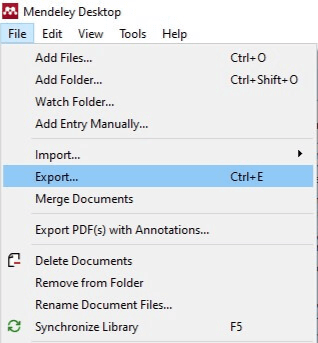
Figure 3a – Exporting bibliographic data from Mendeley to MAXQDA.
 Figure 3b – Importing bibliographic data from Mendeley to MAXQDA.
Figure 3b – Importing bibliographic data from Mendeley to MAXQDA.
When importing bibliographical references, there is the advantage that MAXQDA automatically codes the annexes according to the keywords defined in them. It also allows titles and abstracts to be compiled and coded, to enable future research, codification, and analysis. In addition, it is possible to add notes to the bibliographic entries and save them as memos.
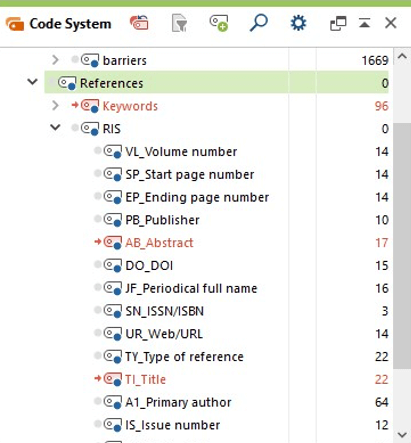 Figure 4 – Imported literature data as codes in MAXQDA.
Figure 4 – Imported literature data as codes in MAXQDA.
Learn more about Importing Bibliographic Data
It is also possible to search for specific keywords and text segments in the full texts (Lexical search) not only to observe the results found but also to automatically code and categorize them in the code systems according to their importance and subject.
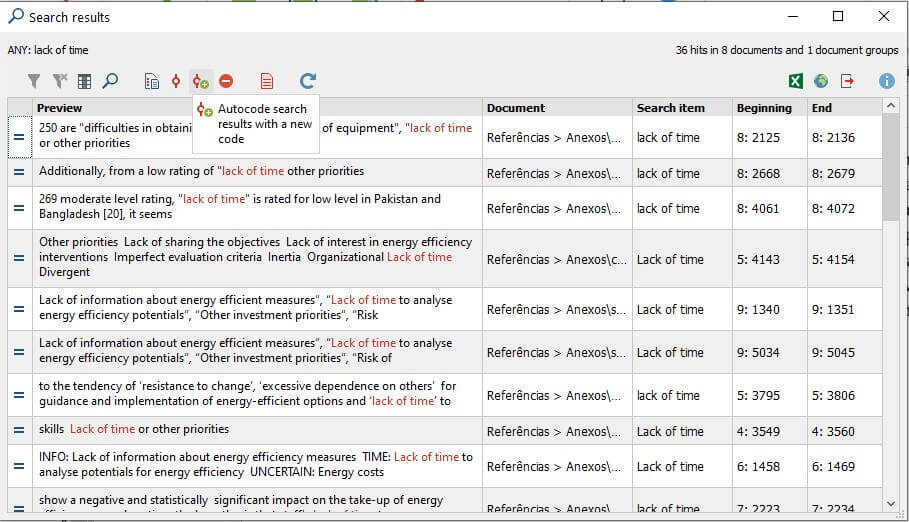 Figure 5 – Lexical search in MAXQDA exploring “lack of time” as a theme across the literature.
Figure 5 – Lexical search in MAXQDA exploring “lack of time” as a theme across the literature.
Learn more about Lexical Search
MAXQDA and literature review: content in focus
Undeniably, MAXQDA has proved to be an important ally in conducting the literature review because, while reference management programs focus on bibliographic data, MAXQDA enables content-focused tasks such as codification and systematic, qualitative, and quantitative content analysis. With MAXQDA it was possible to get some context about not only the frequency in which certain concepts/terms are mentioned but also how they occur, as well as to clearly visualize and explore central themes and terms through Word Clouds like the one displayed in Figure 6, obtained by analyzing the text of selected references. This allowed more quickly collecting and listing a set of barriers, as well as formulating a questionnaire to be put to the various stakeholders of the water sector in Portugal. In addition, it was also possible to identify relevant issues and topics to be addressed in interviews.
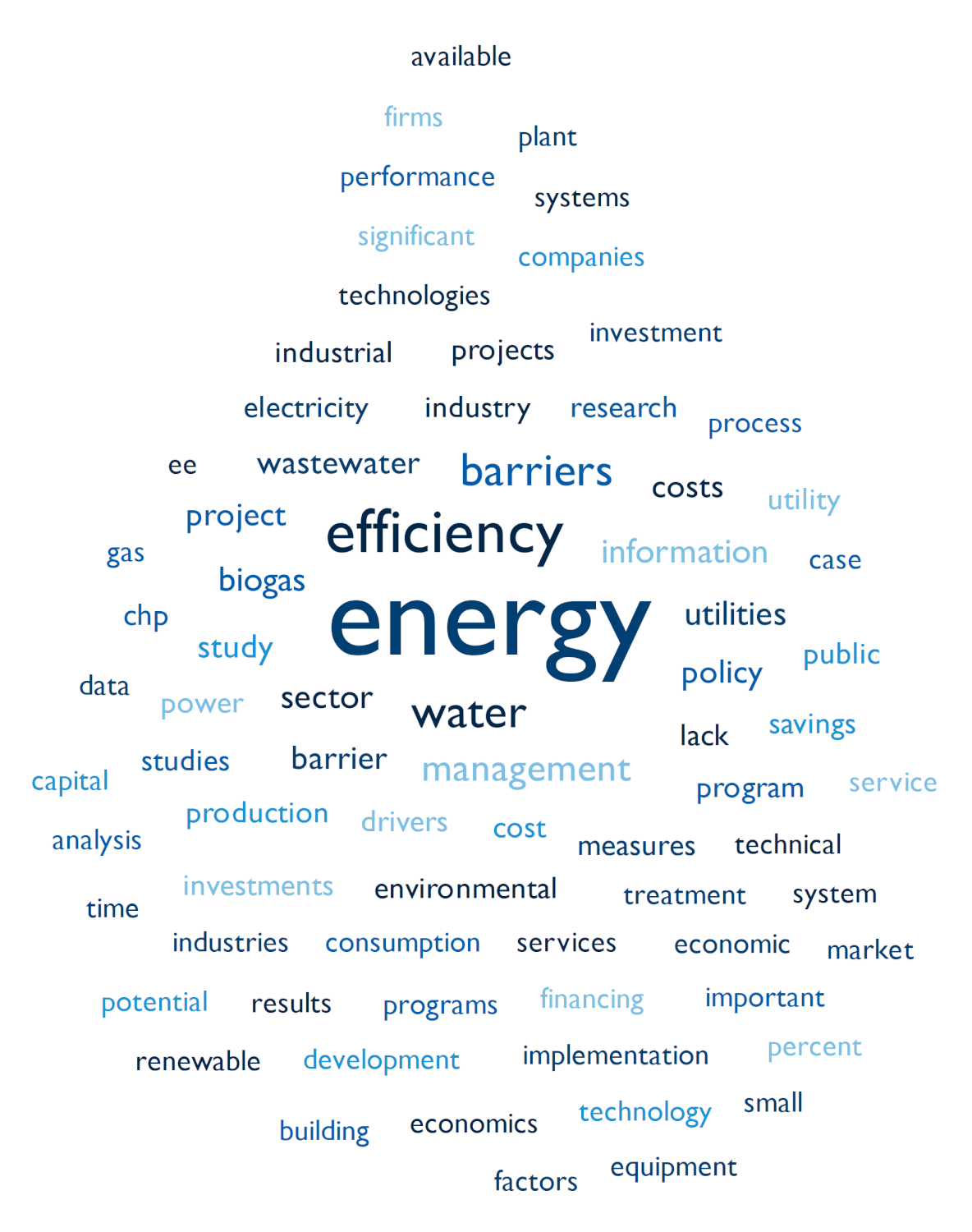 Figure 6 – Drop-shaped Word Cloud obtained from references, displayed in MAXQDA
Figure 6 – Drop-shaped Word Cloud obtained from references, displayed in MAXQDA
Energy for Sustainability (EfS) Initiative – University of Coimbra
Finally, I would like to tell you a little about the doctoral program in which I am enrolled, because I find it very interesting and an unique learning opportunity that should be shared and announced to all those who want to play an important role in the sustainable development of society.
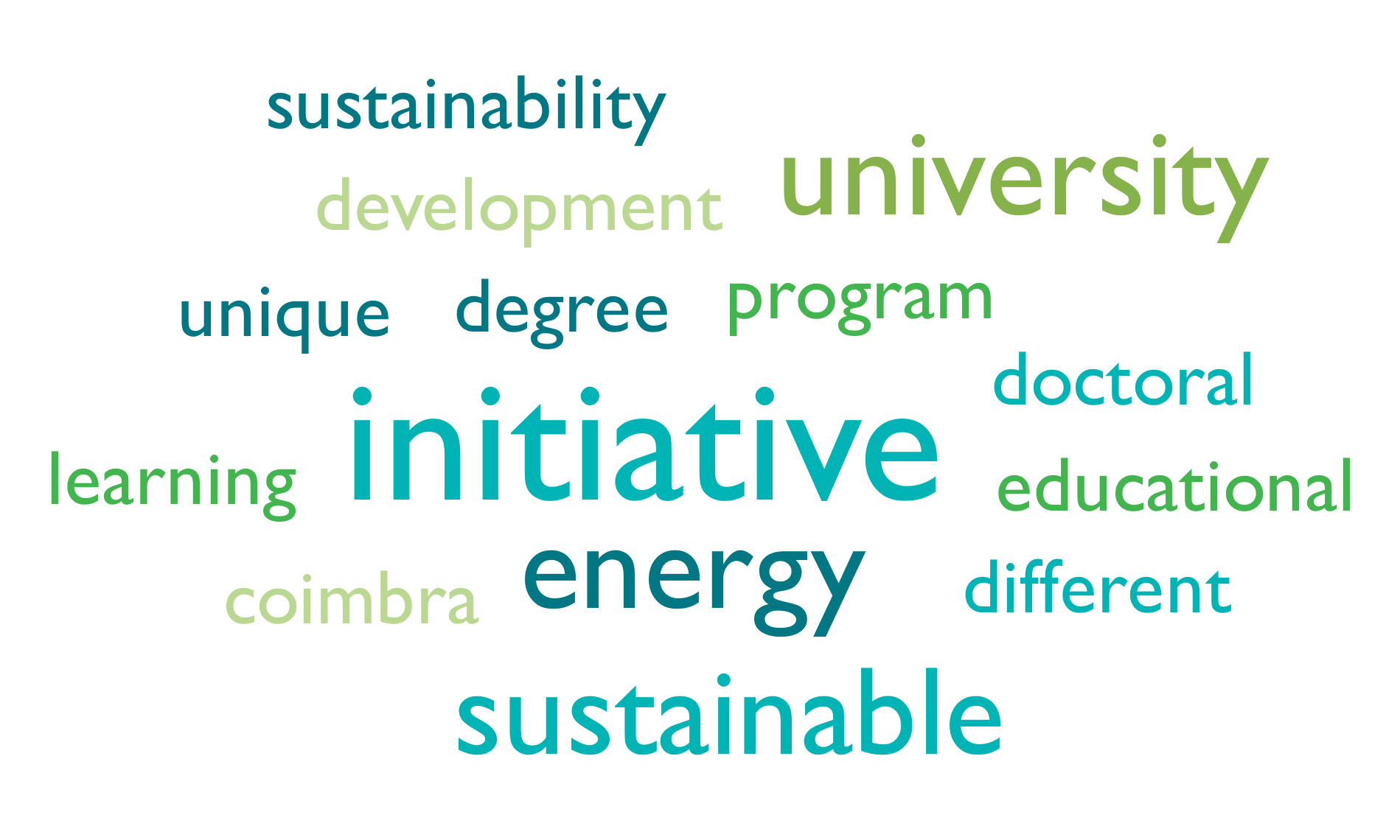 Figure 7 – Word cloud with the description text of the Energy for Sustainability Initiative”
Figure 7 – Word cloud with the description text of the Energy for Sustainability Initiative”
The EfS Initiative brings together professors and researchers from more than a dozen R&D units of the University of Coimbra with extensive experience in teaching and research, namely in the areas of energy and sustainable development. Within the Initiative, advanced educational programs are offered, which include a doctoral degree in association with the MIT Portugal Program, as well as a masters degree, and a specialization course offered within the University.
It was due to the multidisciplinary nature of the Initiative that I decided to pursue my PhD in Sustainable Energy Systems, as it allows addressing the various sustainability issues in a holist way, under several different views, such as engineering, architecture, or economics. In addition, it also enables an enriching collaboration, exchange of ideas, and unique learning opportunities by attracting highly qualified students from different educational backgrounds, geographies, and cultures.
Learn more about the Energy for Sustainability Initiative
About the Author
Bruno Miguel de Jesus Cardoso is a recipient of MAXQDA’s #ResearchForChange Grant, and a Ph.D. student in Sustainable Energy Systems at the University of Coimbra, Portugal. His research project titled “Energy consumption in the Portuguese water sector: benchmarking, barriers and driving forces to energy efficiency” is in progress in Lisbon, Porto, and Coimbra, Portugal.

 Bruno Miguel de Jesus Cardoso is a recipient of MAXQDA’s #ResearchForChange Grant, and a Ph.D. student in Sustainable Energy Systems at the University of Coimbra, Portugal. His research project titled “Energy consumption in the Portuguese water sector: benchmarking, barriers and driving forces to energy efficiency” is in progress in Lisbon, Porto, and Coimbra, Portugal.
Bruno Miguel de Jesus Cardoso is a recipient of MAXQDA’s #ResearchForChange Grant, and a Ph.D. student in Sustainable Energy Systems at the University of Coimbra, Portugal. His research project titled “Energy consumption in the Portuguese water sector: benchmarking, barriers and driving forces to energy efficiency” is in progress in Lisbon, Porto, and Coimbra, Portugal.